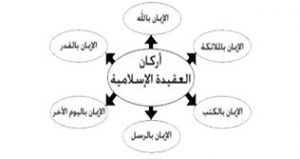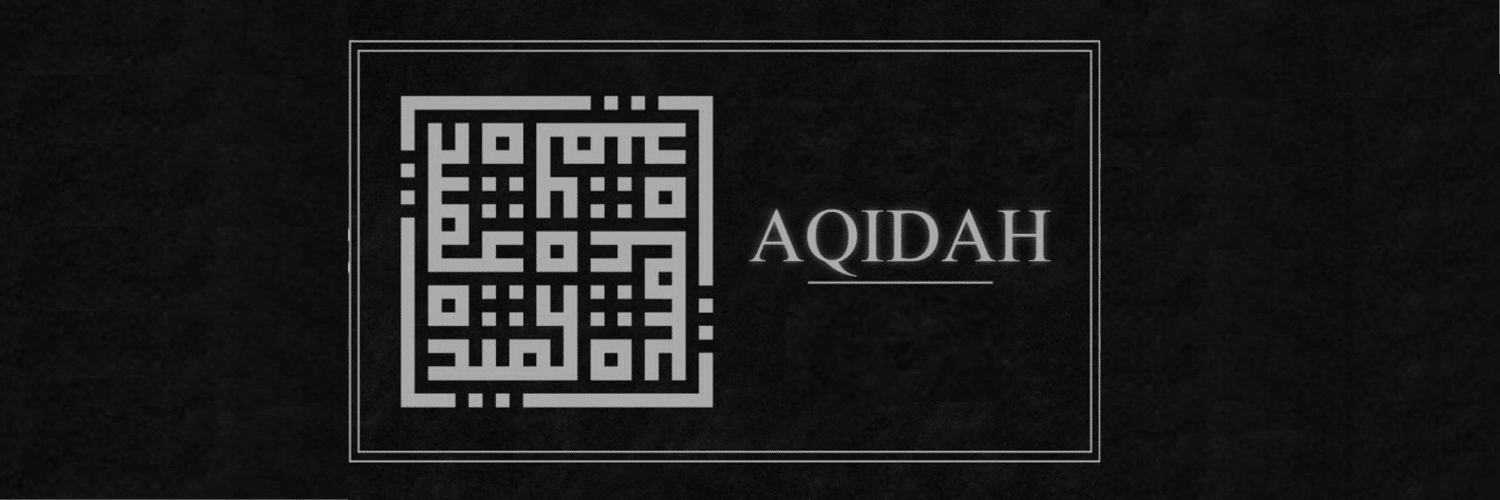Iman ( Islamic Faith) (Aqidah)
We often hear the term Islamic Faith, its correctness and soundness in the heart, and acting upon it without doubt, and that it is the basis of the Islamic religion; if it is correct, consequently all deeds and actions depending on it will be correct.
What is the correct faith?
Defining faith language: The meaning is taken from the verb to contract, which is: to link and tighten strongly and tightly, and so on, which is documented and certain.
Defining faith idiomatically: It is what a person’s heart agrees upon and is certain of, and that he adopts as a religion and a sect.
As for the Islamic faith: It is the firm belief in God, His Angels, His Books, His Messengers, and the Last Day, and the Pre-Ordainment, it’s good and its evil, and belief in all that the Qur’an brought, and in all that the Prophetﷺ, brought, believing and acting upon it without doubt, and full acceptance of the Oneness and Lordship of God and His Names. His Attributes, and belief in all that the authentic texts brought from the origins of the religion and the matters of the unseen and its news, and enters into the creed as well as the postulates of scientific and practical matters; Such as adherence to virtues and good morals and the negation of everything that is against it.
The Book of God and the Sunnah of His Prophetﷺ, have made it clear to us that the correct belief is summed up in: belief in God, His Angels, His Books, His Messengers, the Last Day, and the Pre-Ordainment, its good and its evil.
And the belief origins that God Almighty commanded us to believe are what came in the famous hadith of Gabriel when he asked Our Noble Messengerﷺabout faith, and he, ﷺ, said: (To believe in God, His Angels, His Books, His Messengers, the Last Day and the Pre-Ordainment, it’s good and it’s evil) – Narrated by Muslim.
There are six (6) pillars of faith. These pillars consist of:

Belief in Allah
Belief in His Angels
Belief in His Messengers
Belief in His Books
Belief in the Last Day
Belief in Al-Qadar (Pre-Ordainment)
The Fundamentals and components of the correct faith :
- Belief in God: It refers to the firm belief in the existence of God, and belief in his lordship and divinity, and belief in all His Names and Attributes, and He alone possesses all the attributes of perfection, and He alone is free from any deficiency.
- Belief in the Angels: because they are from the creation of God Almighty, the Almighty. Some of them are honored servants, and each of them is entrusted with his work, his attributes, and his name as mentioned in the Qur’an and Sunnah.
- Belief in the Holy Books: These are the books that God sent down to His Messengers, including the rulings and legislation in support of the Holy Quran, which have guidance and the goodness of mankind.
- Belief in the Prophets and Messengers (SAWS): Believing and believing that God has sent to every nation a Messenger, calling them to worship God alone with no partner and that all messengers and prophets are honest and trustworthy, and they have miracles that God singled out for them, and that they delivered their message and performed it to the fullest extent, and they did not alter or distort it.
- Belief in the Last Day: It is the day that God has prepared for the resurrection of people and their reckoning. Belief in it includes belief in the Resurrection and that it is true, belief in the reckoning, and belief in reward, which is either Heaven or Hell.
- Belief in Al-Qadar (Pre-Ordainment); its good and its evil.
The Methodology of Ahlus-Sunnahwal-Jama`ah in Receiving the Creed:
True faith is the belief of the heart and expression upon the tongue and action upon the limbs, it increases with obedience and decreases with disobedience. In this sentence, the faith concept is confined to Ahlus-Sunnahwal-Jamaa’ah.
The approach of Ahlus-Sunnahwal-Jamaa`ah is based on strong and solid foundations, the strength of faith, and the fulfillment of truth. The approach of Ahlus-Sunnahwal-Jama`ah in receiving the creed is based on the following matters :
– Complete submission to everything that came from God Almighty in His Book (Tawhid ).
– Invoking everything that is authentic from the Messenger of God, ﷺ.
– The texts of the Book and the Sunnah do not contradict rational evidence, for the correct texts are in agreement with what a sound mind decides.
-The Companions, (RA), were the most knowledgeable of people after the Messenger,ﷺ, in the belief, and therefore their interpretation of the legal texts is an argument.
-Following and abandoning bida (innovation)( heresy) in religion, for innovation is one of the greatest doors to misguidance and division.
Usul Al – Aqidah (The creed’s origins):
The pillars of faith are Belief in God, His Angels, His Books, His Messengers, the Last Day, and Pre-Ordainment, it’s good and it’s evil. It is divided into two parts: basic general rules, which are the clear ones indicated by the legal texts, and precise issues where some of them may be ambiguous.
These six pillars are the creed’s foundations, and as for the subtle differences that come in some of them, they are in the branches, and for this, we must know that very large issues are under these pillars, and among these issues are what are fundamental and essential, and they are the ones on which the text came in the Qur’an and the correct Sunnah, and some of them are precise and ambiguous issues in which there is disagreement, and this is not from the creed’s principles, but rather it is from the issues ofاجتهاد “Ijtihad”(independent reasoning, disciplined, academic research )in which the dispute occurs, such as the messengers’ number is not considered from the creed’s principles because there is no messengers’ specific number, but the belief in the messengers and their names that are mentioned in the Qur’aan is one of the creed’s fundamentals.
Given the importance of the Islamic faith and the need for its stability, it has two main sources, which are the basis of religion: the Holy Qur’an (God’s Words), and the hadiths reported from the Prophet, ﷺ. Therefore, it is necessary to submit to God Almighty and His Messengerﷺ, as a large part of it is unseen, and the unseen is usually not comprehended by minds, you should not go into it.
And the consequences of believing in the fundamentals and the branches, ImamIbn al-Qayyim, may God have mercy on him, said:
(They divided the religion into scientific and practical issues and called them fundamentals and branches, and they said: The right in matters of fundamentals is one, and whoever opposes it is an infidel or a sinner. As for the issues of the branches, God Almighty does not have a specific ruling in them, and error is not imagined in them. And every مجتهد “mujtahid” “jurist” (An Islamic scholar who is qualified to perform ijtihad) is right for the rule of God Almighty, which is His rule, and this division, if it comes back to mere terminology, is not distinguished by what they called the principles of what they called branches, so how when they put rules on it and put them with their minds and opinions… Including: proving the branches with the news of the units without the origins, and so on. Every division to which the Book, the Sunnah, and the principles of the Shari’a are not attested by consideration, is an invalid division that must be abolished.
IQRA Network’s aim is to consolidate the Islamic faith correct concept.
Religion and creed represent a way of life, and the correct creed includes ethics that are considered the cornerstone for consolidating the religion morals and applying them to our relationships and transactions. Therefore, IQRA Network sought to provide an integrated educational program that consolidates Islamic belief concepts and monotheism.
An interactive and simple program that instills a seed of faith in Muslims’ hearts since their early childhood.
A team of professors and sheikhs, Islamic studies graduates from Al-Azhar , they devoted themselves and spared no time to design a curriculum in Arabic and English adopting interesting methods of teaching, taking care of instilling the principles of the correct Islamic faith that changes the Muslim’s behaviors for the better and remains as a cornerstone for the learner in the following issues:
- Building a sound understanding of Islam and its application to various aspects of life.
- Identifying the true belief and iman foundations.
- Instilling a love of religion, good qualities, and morals.
- Building a generation that is conscious with sound thought and belief, which can distinguish between truth and falsehood.




